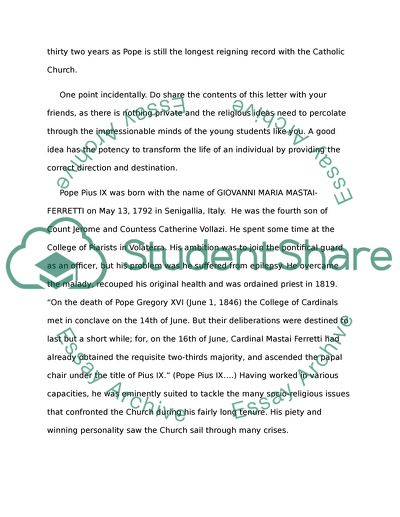Cite this document
(The Church and Political Government: Pope Pius IX Research Paper, n.d.)
The Church and Political Government: Pope Pius IX Research Paper. Retrieved from https://studentshare.org/religion-and-theology/1736829-pope-pius-ix
The Church and Political Government: Pope Pius IX Research Paper. Retrieved from https://studentshare.org/religion-and-theology/1736829-pope-pius-ix
(The Church and Political Government: Pope Pius IX Research Paper)
The Church and Political Government: Pope Pius IX Research Paper. https://studentshare.org/religion-and-theology/1736829-pope-pius-ix.
The Church and Political Government: Pope Pius IX Research Paper. https://studentshare.org/religion-and-theology/1736829-pope-pius-ix.
“The Church and Political Government: Pope Pius IX Research Paper”, n.d. https://studentshare.org/religion-and-theology/1736829-pope-pius-ix.


